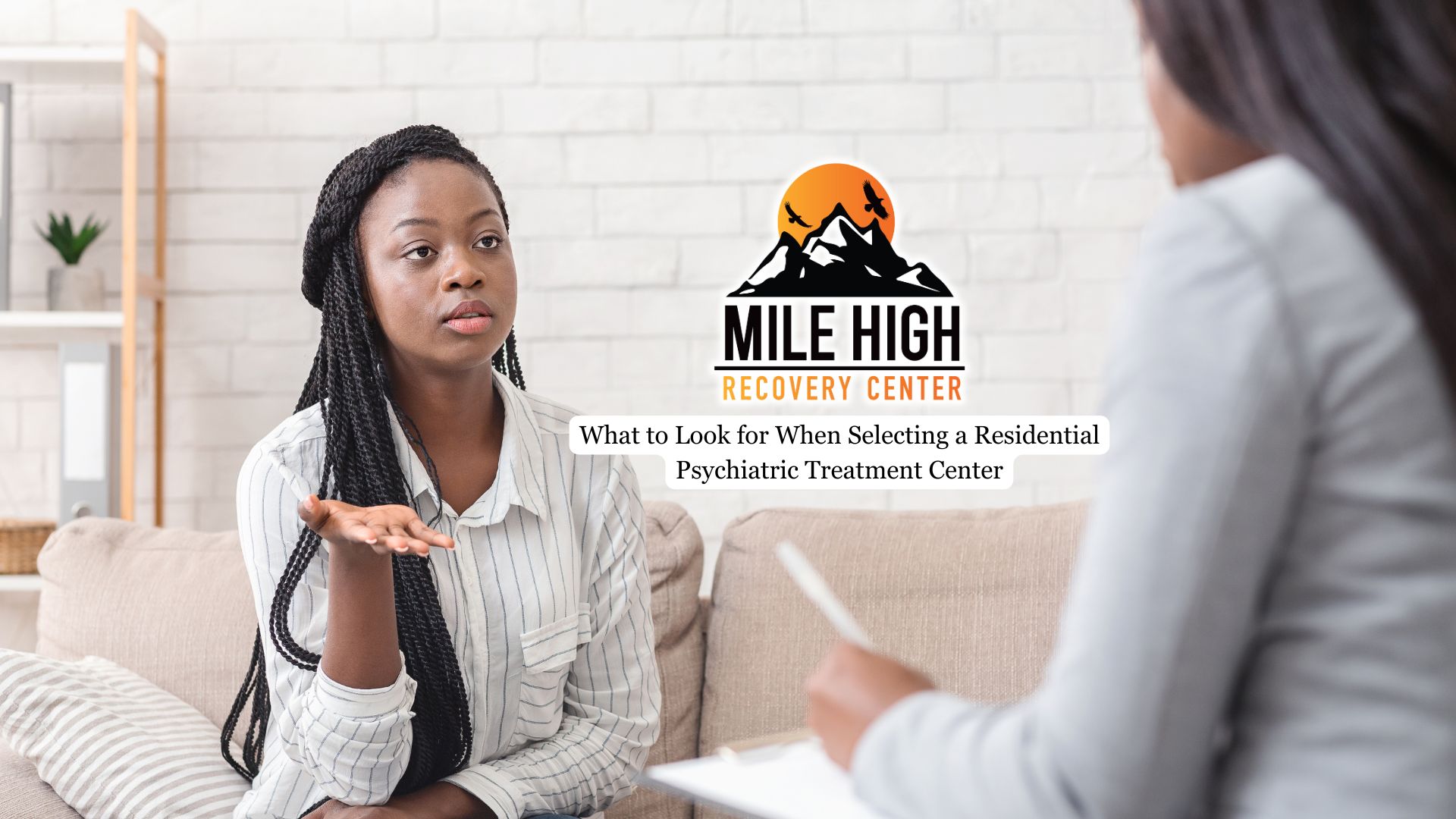Choosing a residential psychiatric treatment center is a significant decision that can shape the path toward recovery and long-term stability. A quality program offers a safe environment, professional guidance, and evidence-based therapies to help individuals regain control of their mental health.
This article outlines key factors to consider when selecting the right facility to ensure effective treatment and lasting improvement.

Understanding the Purpose of Residential Psychiatric Treatment
Residential psychiatric treatment centers provide round-the-clock care for people dealing with serious mental health conditions such as depression, anxiety disorders, bipolar disorder, and schizophrenia. These facilities offer a more intensive level of care compared to outpatient programs, giving patients the stability and focus needed for healing.
The goal is to create an environment where patients can receive consistent medical supervision, participate in daily therapy, and develop coping strategies without external stressors. Before selecting a center, it is essential to determine the appropriate level of care. Some benefit from short-term stabilization, while others require longer-term support to achieve meaningful progress.
At Mile High Recovery, our inpatient mental health programs in Denver offer 24-hour supervision and therapeutic care for individuals struggling with substance use and co-occurring mental health challenges. Our goal is to help clients rebuild stability and focus on recovery in a safe and compassionate environment. This type of setting benefits those who require consistent clinical attention and daily therapy to support long-term healing and lasting sobriety.
Accreditation and Professional Licensing
When evaluating a facility, one of the first things to examine is its accreditation and licensing status. Recognition from reputable organizations signals that a facility meets high standards for safety, ethics, and quality of care. Licensed centers must comply with state and federal regulations, ensuring that staff are qualified and treatment protocols are evidence-based.
Unaccredited or unlicensed programs may not follow the same rigorous standards, which can compromise patient safety and treatment outcomes. Reviewing their credentials and confirming that clinical staff include board-certified psychiatrists, licensed therapists, and experienced nurses can provide reassurance of the center’s credibility.
Evidence-Based Therapies and Personalized Care Plans
A strong residential psychiatric program should emphasize evidence-based treatment methods. These may include cognitive behavioral therapy (CBT), dialectical behavior therapy (DBT), and trauma-informed care. A facility that combines these approaches with holistic options such as art therapy, mindfulness, or experiential activities often achieves better engagement and outcomes.
Personalized care plans are also critical, as each person’s mental health treatment is unique, and therapy must reflect that to be effective. The best programs begin with thorough assessments before admission to design tailored interventions based on symptoms, history, and goals. This individualized approach ensures that each patient receives care tailored to their specific condition, rather than a uniform or generalized approach to care.
Safe and Supportive Environment
A supportive and secure environment plays an essential role in recovery. When visiting or researching centers, consider the atmosphere, cleanliness, and staff-to-patient ratio. A calm setting encourages emotional regulation and comfort, while attentive staff help ensure safety and trust. Residential centers should maintain confidentiality, uphold dignity, and foster respect among patients and staff.
Many facilities also integrate family involvement into the treatment process. Family therapy or visitation policies can strengthen communication and help loved ones understand how to support recovery. Asking about aftercare planning is equally important, as transitioning back into everyday life requires continued guidance and resources.

Medical and Psychiatric Support Availability
Access to medical professionals is vital in residential psychiatric care, as mental health symptoms can fluctuate, and individuals may need medication adjustments or medical monitoring throughout their stay. Ensure the center provides 24-hour access to psychiatric and medical staff who promptly can address emergencies or medication needs.
It is also helpful to ask about the center’s approach to co-occurring disorders, as many people experience both mental health and substance use challenges. A dual-diagnosis program that treats both conditions concurrently often results in more sustainable recovery and improved overall well-being.
Patient Reviews and Success Indicators
Feedback from past patients or families can offer valuable insight into a center’s reputation and effectiveness. Look for consistent reviews mentioning professionalism, compassion, and meaningful progress. Some facilities also provide statistics or outcome data that demonstrate recovery rates or patient satisfaction. While personal experiences vary, these indicators can help gauge the level of care and support provided.
It may also be useful to schedule a consultation or facility tour. Speaking directly with staff allows potential patients or families to understand the center’s approach, values, and expectations before committing.
Final Thoughts from Mile High Recovery
Selecting the right residential psychiatric treatment center requires careful consideration of quality, safety, and therapeutic effectiveness. Focusing on accreditation, individualized care, and a supportive environment ensures that patients receive comprehensive and compassionate treatment. The right decision can lead to meaningful change and long-term stability.
At Mile High Recovery, our residential program in Denver, CO, is designed to support individuals at every stage of addiction and mental health recovery. Through evidence-based therapies, medical supervision, and a compassionate team, we create an environment where true healing can begin. Our mission is to help each person build a strong foundation for lasting sobriety, emotional balance, and overall wellness.







